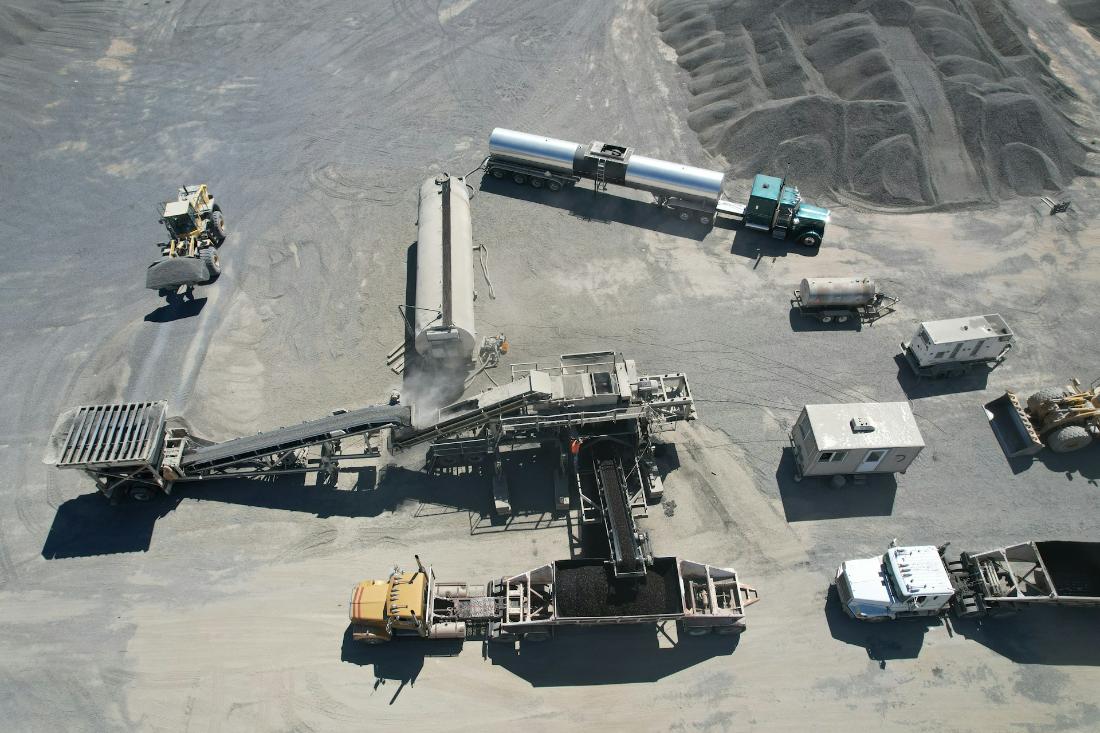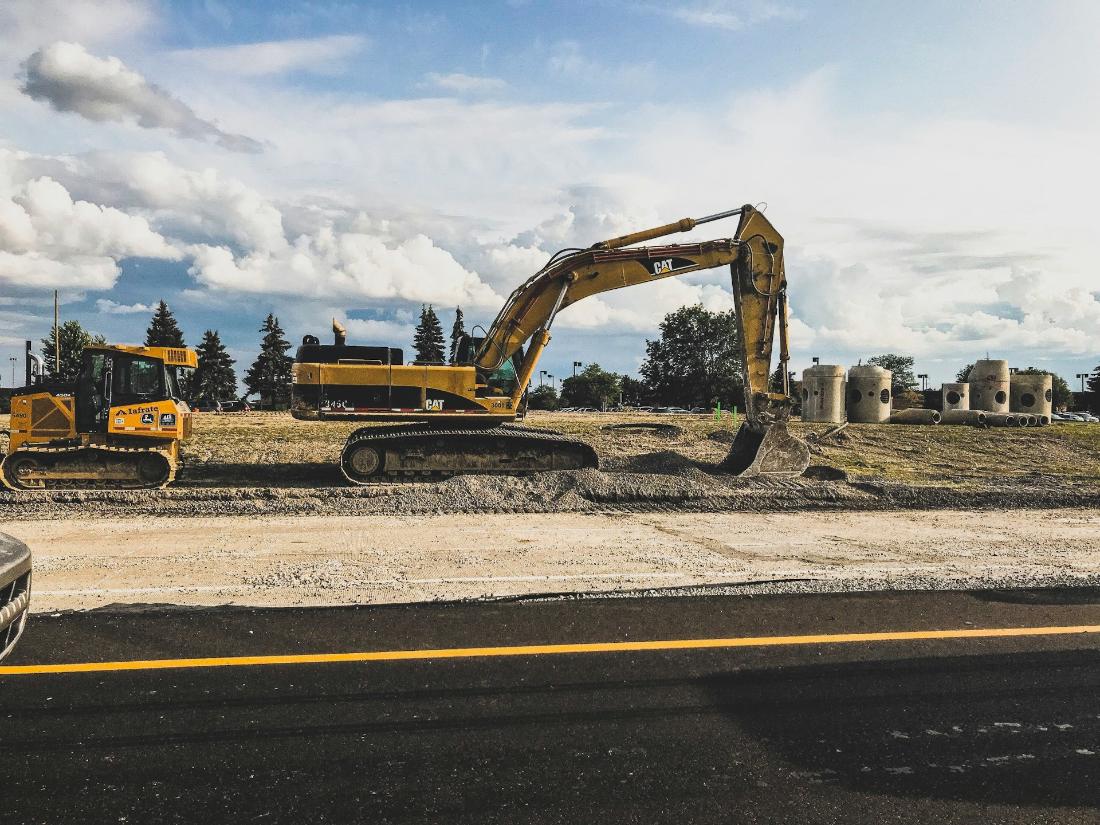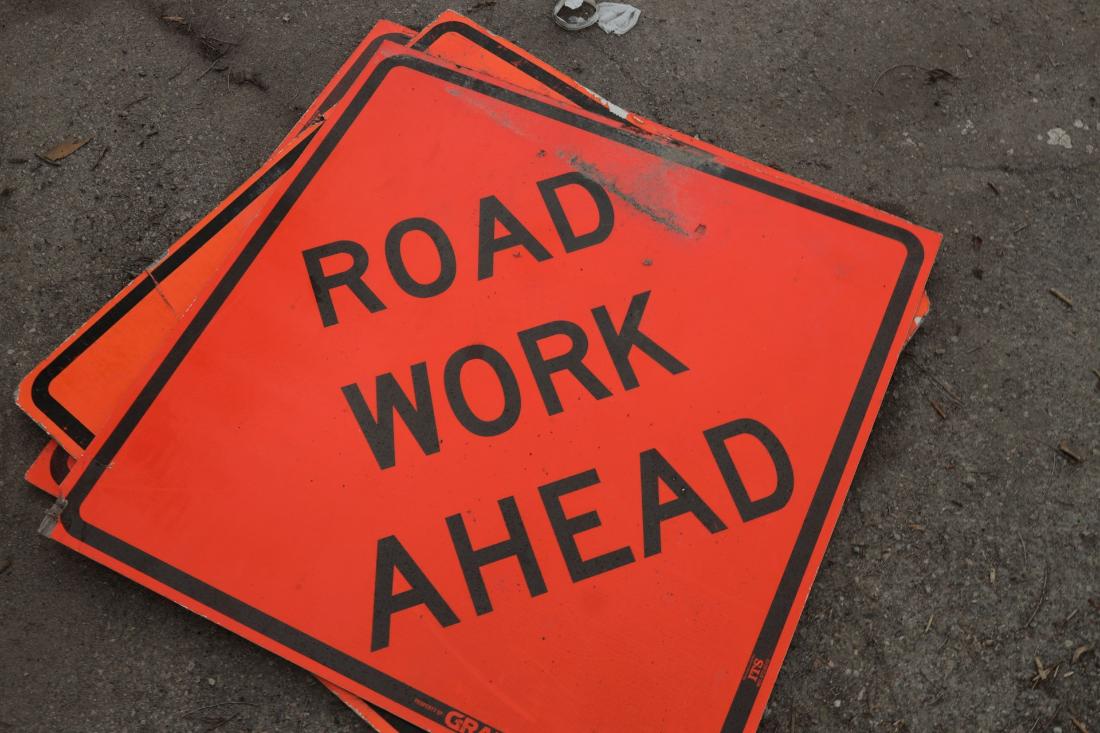Structure
Road Work Specialist in Malaysia: The Architects of Our Nation's Connectivity
Nov 26 2025
The rhythmic hum of Malaysia's progress has a distinct sound – it is the steady rumble of machinery along the Pan Borneo Highway, the precise pour of concrete on a new bridge in Penang, and the careful laying of asphalt that transforms a muddy track into a vital village road. These are the sounds orchestrated by a unique class of professionals: road work specialists in Malaysia. These are not mere contractors; they are the master weavers connecting the fabric of our nation, the problem-solvers who navigate complex terrains and challenging conditions to ensure that every community, from the bustling heart of Kuala Lumpur to the most remote village in Sarawak, remains connected to the pulse of modern life. Their work forms the very circulatory system of our country's economy and social structure, making their role both technically demanding and profoundly human.
The journey of a road from conception to completion is a complex symphony conducted by these specialists, beginning long before any machinery arrives on site. It starts with meticulous planning and feasibility studies, where engineers and planners assess the need for the road, its potential impact on the environment and communities, and the most efficient alignment. This initial phase involves comprehensive traffic analysis, soil investigations, and environmental impact assessments, ensuring that the road will serve its purpose without causing undue harm to the natural ecosystem. The road work specialist brings invaluable local knowledge to this stage, understanding the region's rainfall patterns, soil stability, and cultural landscape. This deep, contextual insight allows them to anticipate challenges that might not be apparent on a blueprint, such as seasonal flooding in the east coast states or the need to preserve ancient trees in a heritage area, ensuring the project is sustainable from its very foundation.
Following planning, the design phase transforms concepts into detailed engineering blueprints. This is where the specialist's expertise in civil engineering principles truly shines. They must design a road that can withstand Malaysia's unique tropical climate, with its intense monsoon rains and constant humidity. This involves sophisticated calculations for drainage systems that can handle sudden, heavy downpours, pavement designs that resist deformation under the relentless sun and heavy traffic, and slope stabilization measures to prevent landslides in hilly areas. The design must also incorporate essential safety features: appropriate camber and superelevation for curves, clear line-of-sight distances, and the integration of guardrails, signage, and lighting. A reputable road work specialist approaches this phase with a holistic vision, creating a design that is not only structurally sound but also safe, efficient, and harmonious with its surroundings.
The journey of a road from conception to completion is a complex symphony conducted by these specialists, beginning long before any machinery arrives on site. It starts with meticulous planning and feasibility studies, where engineers and planners assess the need for the road, its potential impact on the environment and communities, and the most efficient alignment. This initial phase involves comprehensive traffic analysis, soil investigations, and environmental impact assessments, ensuring that the road will serve its purpose without causing undue harm to the natural ecosystem. The road work specialist brings invaluable local knowledge to this stage, understanding the region's rainfall patterns, soil stability, and cultural landscape. This deep, contextual insight allows them to anticipate challenges that might not be apparent on a blueprint, such as seasonal flooding in the east coast states or the need to preserve ancient trees in a heritage area, ensuring the project is sustainable from its very foundation.
Following planning, the design phase transforms concepts into detailed engineering blueprints. This is where the specialist's expertise in civil engineering principles truly shines. They must design a road that can withstand Malaysia's unique tropical climate, with its intense monsoon rains and constant humidity. This involves sophisticated calculations for drainage systems that can handle sudden, heavy downpours, pavement designs that resist deformation under the relentless sun and heavy traffic, and slope stabilization measures to prevent landslides in hilly areas. The design must also incorporate essential safety features: appropriate camber and superelevation for curves, clear line-of-sight distances, and the integration of guardrails, signage, and lighting. A reputable road work specialist approaches this phase with a holistic vision, creating a design that is not only structurally sound but also safe, efficient, and harmonious with its surroundings.
The physical manifestation of this planning and design begins with earthworks and ground preparation, arguably the most critical stage that determines the road's longevity. Using a fleet of excavators, bulldozers, and graders, the specialist's team sculpts the landscape, cutting through hills and filling valleys to create a stable formation level. This is followed by the construction of the road's foundation, known as the sub-base and base courses. These layers, typically made of crushed stone and aggregate, are meticulously compacted using heavy vibratory rollers. The precision applied here is scientific; improper compaction leads to settlement and potholes, the scourge of any road network. The specialist’s team conducts rigorous on-site testing, using tools like nuclear density gauges, to ensure every layer meets the strict specifications set by bodies like Jabatan Kerja Raya (JKR). This uncompromising attention to detail at the foundational level is what separates a temporary track from a road built to last for decades.
The final stage is the paving process, a highly coordinated operation that is both an art and a science. Heated asphalt is delivered from a batching plant and fed into an asphalt paver, which lays the material at a precise thickness and width. Behind the paver, a sequence of rollers—breakdown, intermediate, and finish—compacts the hot mix to achieve the required density and a smooth, even surface. The specialist’s skill is evident in the flawless finish of the road, free from bumps and inconsistencies. But their work doesn't end when the last roller passes. They are also responsible for installing all ancillary elements: well-constructed drains and culverts that effectively channel water away from the road surface, durable road kerbs that define edges and aid drainage, and clear, reflective road markings that guide drivers day and night. This comprehensive approach ensures the delivered infrastructure is fully functional and safe from its first day of use.
Beyond new construction, a significant part of a road work specialist's portfolio involves maintenance and rehabilitation, which is crucial for preserving the nation's existing infrastructure assets. Roads are subject to constant wear and tear from traffic loads and environmental forces. A proactive specialist employs various techniques to extend a road's life, from surface treatments like slurry sealing to prevent water ingress, to more extensive methods like mill-and-pave, where the worn-out surface is removed and replaced. They also handle emergency repairs, such as fixing potholes that appear after heavy rains or stabilizing slopes after a minor landslide. This maintenance philosophy is not merely reactive; it is a strategic, cost-effective approach to asset management. By addressing small issues promptly, specialists prevent them from escalating into major, costly reconstruction projects, ensuring public funds are used efficiently and road user inconvenience is minimized.
The final stage is the paving process, a highly coordinated operation that is both an art and a science. Heated asphalt is delivered from a batching plant and fed into an asphalt paver, which lays the material at a precise thickness and width. Behind the paver, a sequence of rollers—breakdown, intermediate, and finish—compacts the hot mix to achieve the required density and a smooth, even surface. The specialist’s skill is evident in the flawless finish of the road, free from bumps and inconsistencies. But their work doesn't end when the last roller passes. They are also responsible for installing all ancillary elements: well-constructed drains and culverts that effectively channel water away from the road surface, durable road kerbs that define edges and aid drainage, and clear, reflective road markings that guide drivers day and night. This comprehensive approach ensures the delivered infrastructure is fully functional and safe from its first day of use.
Beyond new construction, a significant part of a road work specialist's portfolio involves maintenance and rehabilitation, which is crucial for preserving the nation's existing infrastructure assets. Roads are subject to constant wear and tear from traffic loads and environmental forces. A proactive specialist employs various techniques to extend a road's life, from surface treatments like slurry sealing to prevent water ingress, to more extensive methods like mill-and-pave, where the worn-out surface is removed and replaced. They also handle emergency repairs, such as fixing potholes that appear after heavy rains or stabilizing slopes after a minor landslide. This maintenance philosophy is not merely reactive; it is a strategic, cost-effective approach to asset management. By addressing small issues promptly, specialists prevent them from escalating into major, costly reconstruction projects, ensuring public funds are used efficiently and road user inconvenience is minimized.
In today's world, a road work specialist must also be a champion of technology and innovation. The industry is rapidly evolving, embracing Building Information Modeling (BIM) to create digital twins of projects, allowing for better planning and clash detection before construction begins. GPS-guided machinery ensures earthworks and paving are executed with centimeter-level accuracy, reducing material waste and improving quality. Drones are used for topographic surveying, progress monitoring, and inspecting hard-to-reach areas like bridges and slopes, providing data that is faster and more comprehensive than traditional methods. Furthermore, specialists are increasingly exploring sustainable materials, such as recycled asphalt pavement (RAP) and warm-mix asphalt technologies that lower production temperatures, reducing fuel consumption and greenhouse gas emissions. By integrating these advancements, the modern road work specialist in Malaysia is not just building roads; they are building smarter, greener, and more resilient infrastructure for the future.
The human element, however, remains the cornerstone of every successful project. A road work specialist operates within a complex web of relationships with various stakeholders. They must maintain clear and constant communication with government agencies like JKR and local authorities, ensuring compliance with all regulations and standards. They collaborate with consultants and architects to bring designs to life, and they manage a large, diverse workforce of engineers, supervisors, machine operators, and laborers. Perhaps most importantly, they engage with the communities affected by their work. This involves managing traffic to minimize disruption, addressing residents' concerns about noise and dust, and ensuring local businesses remain accessible. The most respected specialists view this not as a burden but as a responsibility, understanding that their work, while ultimately beneficial, temporarily impacts people's daily lives. Their ability to manage these relationships with empathy, transparency, and professionalism is as critical as their technical competence.
The role of a road work specialist carries immense responsibility, particularly concerning safety and quality assurance. On the worksite, they must enforce rigorous safety protocols to protect their workers and the public, adhering to DOSH guidelines. This includes proper signage, barriers, personal protective equipment (PPE), and traffic management plans. Off the site, their commitment to quality is reflected in a robust Quality Management System, often certified to international standards like ISO 9001. This system governs every process, from material sourcing—ensuring aggregates and bitumen meet specifications—to final testing of the finished road surface for smoothness and strength. This unwavering dedication to safety and quality is non-negotiable; it is the foundation of their reputation and the ultimate guarantee of the infrastructure's reliability and longevity.
In conclusion, the road work specialist in Malaysia is a multifaceted professional whose contribution extends far beyond the layers of asphalt and concrete we drive on. They are the guardians of our mobility, the enablers of economic trade, and the quiet builders of national unity. They combine deep engineering expertise with local knowledge, technological adoption with a commitment to sustainability, and managerial skill with a human touch. The next time you embark on a smooth, safe journey across this beautiful country, take a moment to consider the immense skill, dedication, and foresight embedded in the road beneath you. It is a testament to the road work specialists who, with quiet determination, continue to draw the lines that connect us all, paving the way for a more prosperous and interconnected Malaysia.
The human element, however, remains the cornerstone of every successful project. A road work specialist operates within a complex web of relationships with various stakeholders. They must maintain clear and constant communication with government agencies like JKR and local authorities, ensuring compliance with all regulations and standards. They collaborate with consultants and architects to bring designs to life, and they manage a large, diverse workforce of engineers, supervisors, machine operators, and laborers. Perhaps most importantly, they engage with the communities affected by their work. This involves managing traffic to minimize disruption, addressing residents' concerns about noise and dust, and ensuring local businesses remain accessible. The most respected specialists view this not as a burden but as a responsibility, understanding that their work, while ultimately beneficial, temporarily impacts people's daily lives. Their ability to manage these relationships with empathy, transparency, and professionalism is as critical as their technical competence.
The role of a road work specialist carries immense responsibility, particularly concerning safety and quality assurance. On the worksite, they must enforce rigorous safety protocols to protect their workers and the public, adhering to DOSH guidelines. This includes proper signage, barriers, personal protective equipment (PPE), and traffic management plans. Off the site, their commitment to quality is reflected in a robust Quality Management System, often certified to international standards like ISO 9001. This system governs every process, from material sourcing—ensuring aggregates and bitumen meet specifications—to final testing of the finished road surface for smoothness and strength. This unwavering dedication to safety and quality is non-negotiable; it is the foundation of their reputation and the ultimate guarantee of the infrastructure's reliability and longevity.
In conclusion, the road work specialist in Malaysia is a multifaceted professional whose contribution extends far beyond the layers of asphalt and concrete we drive on. They are the guardians of our mobility, the enablers of economic trade, and the quiet builders of national unity. They combine deep engineering expertise with local knowledge, technological adoption with a commitment to sustainability, and managerial skill with a human touch. The next time you embark on a smooth, safe journey across this beautiful country, take a moment to consider the immense skill, dedication, and foresight embedded in the road beneath you. It is a testament to the road work specialists who, with quiet determination, continue to draw the lines that connect us all, paving the way for a more prosperous and interconnected Malaysia.


